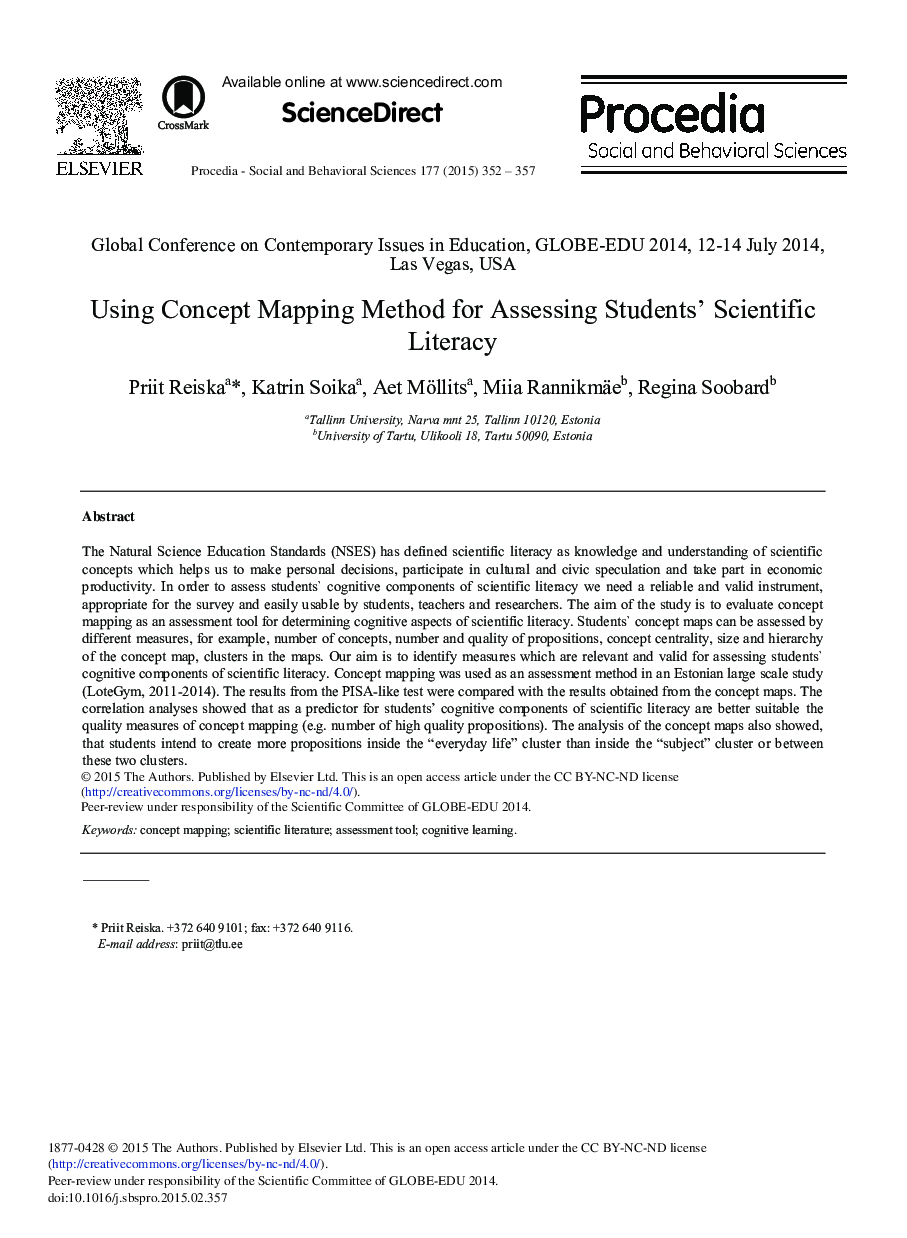| Article ID | Journal | Published Year | Pages | File Type |
|---|---|---|---|---|
| 1110683 | Procedia - Social and Behavioral Sciences | 2015 | 6 Pages |
The Natural Science Education Standards (NSES) has defined scientific literacy as knowledge and understanding of scientific concepts which helps us to make personal decisions, participate in cultural and civic speculation and take part in economic productivity. In order to assess students ‘cognitive components of scientific literacy we need a reliable and valid instrument, appropriate for the survey and easily usable by students, teachers and researchers. The aim of the study is to evaluate concept mapping as an assessment tool for determining cognitive aspects of scientific literacy. Students ‘concept maps can be assessed by different measures, for example, number of concepts, number and quality of propositions, concept centrality, size and hierarchy of the concept map, clusters in the maps. Our aim is to identify measures which are relevant and valid for assessing students ‘cognitive components of scientific literacy. Concept mapping was used as an assessment method in an Estonian large scale study (LoteGym, 2011-2014). The results from the PISA-like test were compared with the results obtained from the concept maps. The correlation analyses showed that as a predictor for students’ cognitive components of scientific literacy are better suitable the quality measures of concept mapping (e.g. number of high quality propositions). The analysis of the concept maps also showed, that students intend to create more propositions inside the “everyday life” cluster than inside the “subject” cluster or between these two clusters.
